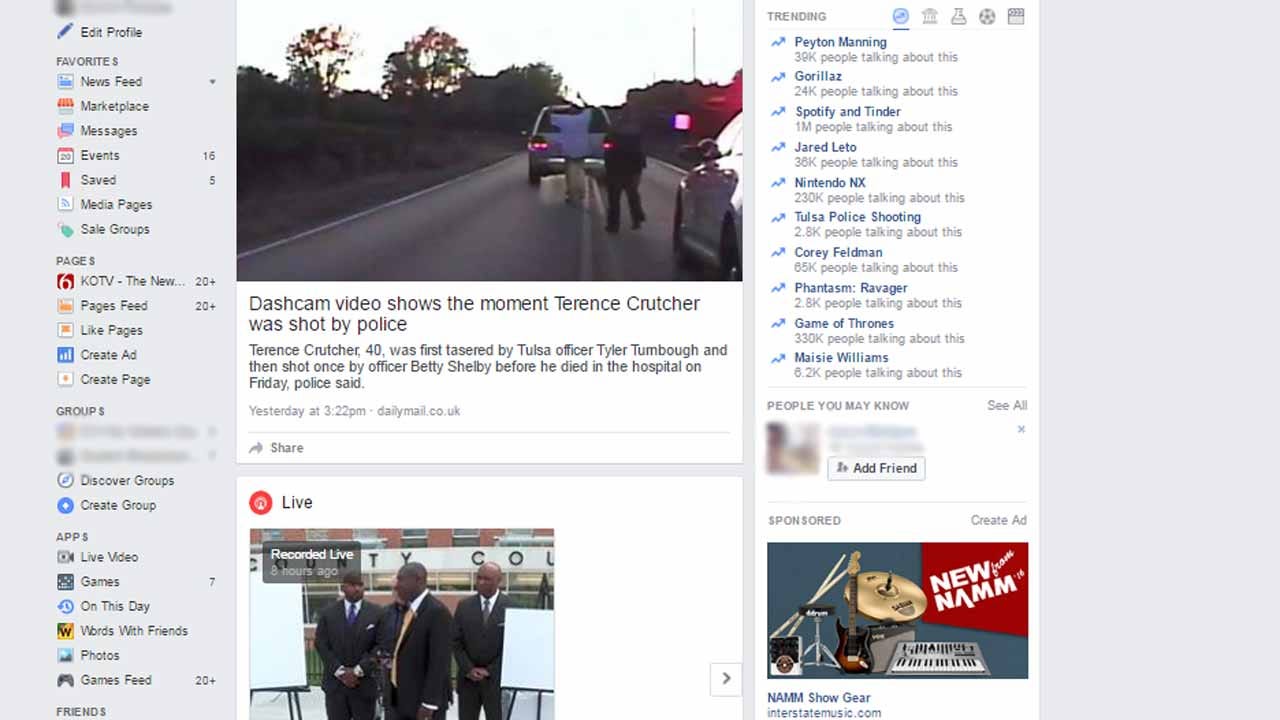Terence Crutcher Shooting Getting Social Media Attention
<p>News of Terence Crutcher's death is trending on social media sites around the world, allowing millions of people to join in the conversation.</p>Tuesday, September 20th 2016, 11:00 pm
News of Terence Crutcher's death is trending on social media sites around the world, allowing millions of people to join in the conversation.
Social media does more than just spread the story; one expert explains how social media shapes the national conversation about race and police.
It's something many of us do without a thought - check what our friends are doing, get some news, and sometimes voice our thoughts on a national conversation. But is the online conversation solving anything?
Oral Roberts University Professor Dr. Curtis Ellis studies the habits of social media interaction and said online conversations aren't really conversations because we tend to see like-minded posts.
"Social media is another place where we have developed echo chambers. Your social network is going to look like you," Ellis said.
Or, in other words, one-sided conversations.
"Because of the dynamics of social media, you're more likely to see it from a perspective that represents the kind of group that you are a part of," Ellis explained.
Since a Tulsa Police Officer Betty Shelby shot and killed Terence Crutcher, people from all over have posted their thoughts.
Special Coverage: Terrence Crutcher Police Shooting
On Facebook, one person wrote, "until we can admit there's a problem change cannot happen #TerenceCrutcher.”
Another said "…we don't know what happened and none of us were there. So until you get all the facts, please, let the police do their jobs and don't express your outrage until it is proven that the cops were out of line."
Both examples relate to the same story, but in their own way.
"People are going to chime in, that's kind of the way social media is set up," Ellis said. "So there's exposure bias, there's all kinds of information bias, there's confirmation bias. All of those things."
The professor believes it got this way partly because, “You don't have to expose yourself to things you don't agree with. You can hide those posts."
Another person on Facebook commented on Terence Crutcher's death saying, "this isn't about agenda or painting with wide brush strokes…it's about empathy and wanting to see things get better."
To ensure you aren't only exposed to like-minded people, Ellis said you should mute your predispositions and try to see where people are coming from.
More Like This
September 20th, 2016
September 29th, 2024
September 17th, 2024
Top Headlines
November 15th, 2024
November 15th, 2024
November 15th, 2024
November 15th, 2024












